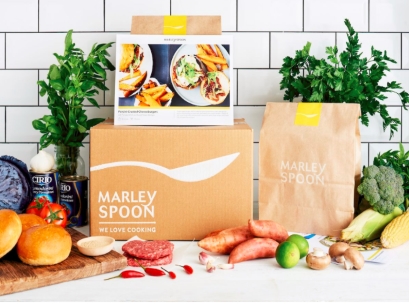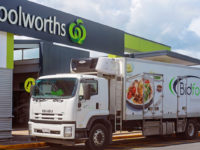 Meal kit company Marley Spoon has secured a financing package of approximately €22 million to support the company on its path to break-even.
Meal kit company Marley Spoon has secured a financing package of approximately €22 million to support the company on its path to break-even.
Cornerstone funding of around €10 million will be provided by bridging loans from two funds affiliated with venture capital firm Union Square Ventures.
The company has also entered into a €2.6 million equipment-leasing agreement with CSC Leasing to support the automation of production lines in the US and Australia and has also signed a €2.5 million two-year term loan agreement with German lender Berliner Volksbank.
In a statement on Tuesday, the company reported net revenue for 2018 of €92 million and reaffirmed its prior guidance to reach profitability on an operating EBITDA basis by 2020.
The company recorded net revenue of €28.6 million for the three months period ending December 31 (Q4) up 20 per cent compared to Q3 and up 65 per cent compared with the same period in 2017.
Marley Spoon signalled that the company could lose around 36 million EBIT for calendar year 2018, previously estimated at €32-34 million, due to increased marketing spend.
“We had a great finish to the year in terms of revenue growth across all regions, resulting in year on year growth of 78 per cent on a constant currency basis,” said Marley Spoon CEO Fabian Siegel.
“Our increased investment in marketing at stable acquisition costs is paying off, as we keep building our loyal customer base to serve as the foundation for strong growth in 2019 and beyond.”
Siegel said that the introduction of 20 menu choices in Australia and Germany has been very well received and is translating to higher sales per customer.
Earlier this week, Australian supermarket Coles dipped its toes in the meal delivery market, in a foray with Uber Eats.
Chief executive Steven Cain had last year hinted at plans to improve the supermarket’s convenience offering, saying he was “fascinated” by the popularity of meal-kits.
However, Siegel believes supermarkets will find it very difficult to compete with the direct-to-consumer approach that Marley Spoon implements.
“Supermarkets have realised consumers want convenience and they love meal kits, so they see it’s something that’s here to stay, it’s not a trends that will go away,” Siegel told Inside FMCG in December.
“But supermarkets haven’t understood the benefit of the meal kit, which is you bypass the shelf. The supermarket shelf is the problem. You have the same problem with any other perishable item, if you have to throw away massive amounts of products which in the end will cost you.”
















